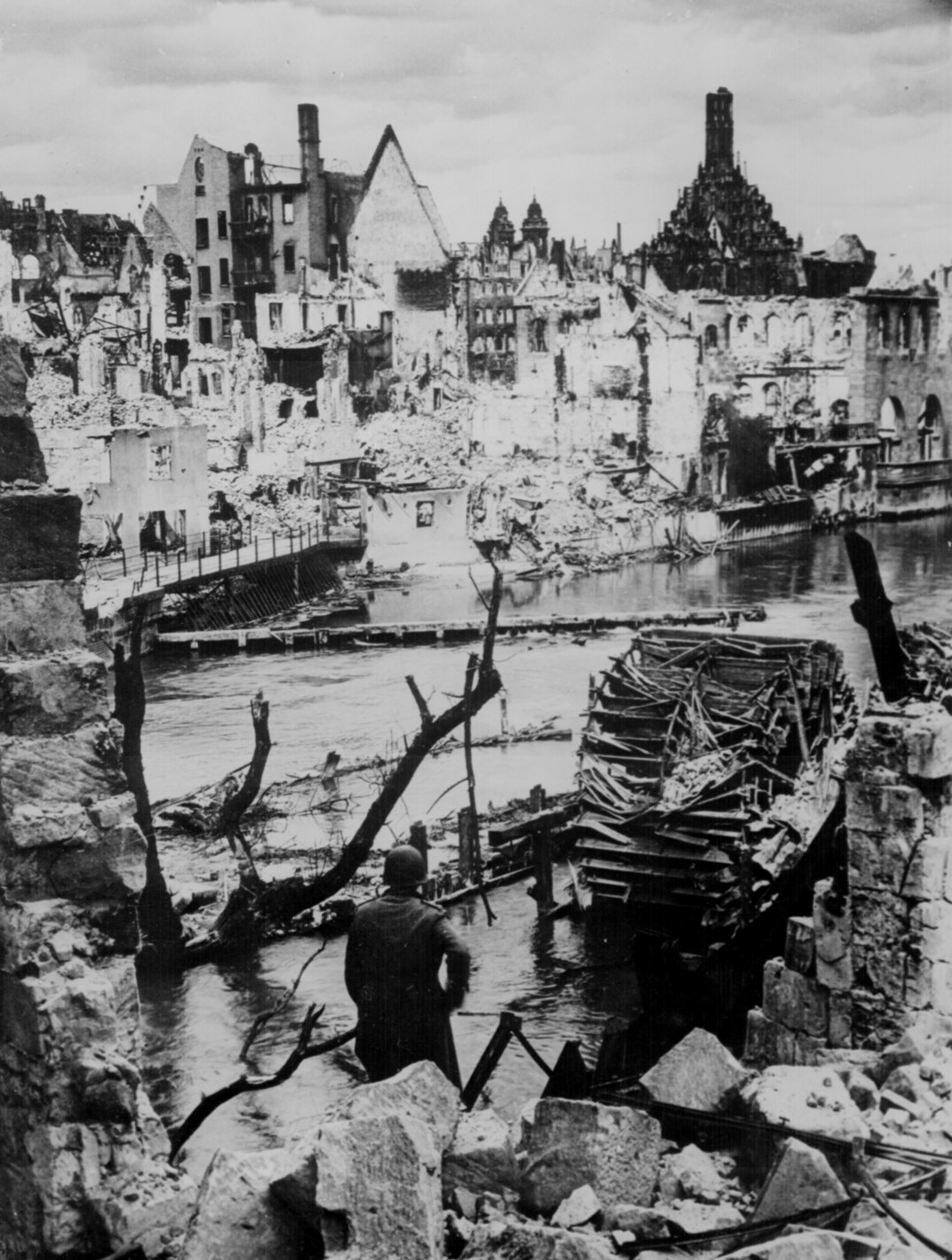
Much of Germany was in ruins by the time the Nazis gave up.
Recent events in Egypt, Tunisia and now Libya have shown us how quickly dictatorships can be challenged and (in the case of the first two countries) overthrown.
Which leaves us once again with one of the enduring mysteries of WW2 – why did the Nazi regime hold out until the spring of 1945 when Red Army soldiers were just yards from Hitler’s bunker in Berlin? After all, Mussolini had been ousted in the autumn of 1943, as soon as the Italians realized which way the war was going. So why couldn’t the Germans have got rid of Hitler at the same time?
The answer to that question tells us a great deal about the way revolutions can happen – or not happen – and how dictators can fall. Ultimately there were two crucial reasons why Hitler was not brought down by the popular discontent for the war which no doubt existed in Germany after the defeat at Stalingrad in early 1943. The first reason is practical, the second is institutional.
The practical reason has to do with the simple lack of alternatives available to the Germans. By attacking the Soviet Union and treating the Soviet population so appallingly, the Germans had unleashed a tidal wave of hatred which was coming their way. Would removing Hitler and surrendering to the approaching Red Army be any better than simply fighting on for as long as possible and hoping for the best? Senior Nazis, in particular, had ‘burnt their boats’ by 1943 and had little to gain by removing Hitler. As for the army leadership, the question of what to do about the war in the East was one of the concerns of the army officers who plotted against Hitler and tried to blow him up in July 1944. There was a fantasy amongst some of them that the Western Allies could have been persuaded, once Hitler was no longer there, to ally themselves with the German army and then turn against Stalin. But it was just that – a fantasy.
The institutional reason has to do with the nature of the Nazi state. Unlike in Italy where there were structures within the political system which could challenge Mussolini (like the King and the Fascist Grand Council), Hitler had always taken care to destroy – as far as he could – any possible power group who could think independently and move to remove him. The only one he had failed to eliminate was the army officer corps, and so it was no accident that the only attempted coup against him came from that quarter.
In the last two years of the Nazi regime German citizens suffered appallingly – not just because of the Allied bombardment, but because of the oppression of the Gestapo and their associates. Hitler was determined to bring the world – or at least Germany – down with him if he could.
Does that not remind us off the current intentions of another crazed dictator, living and breathing in Tripoli as I write this?
 Twitter
Twitter






I heard Ian Kershaw give a lecture on this very topic in Cambridge last year. He cited ten reasons some of which you mention here (eg the unieaashing of the Gestapo on the German people in the last year of the war ….roaming kangaroo courts to seek out dissidents etc). He also mentioned that despite everything, the Nazi civil service was still very much in operation even up the very end of the war (cleaners in Nazi command offices were still being paid in May 45). Kershaw also talked about the fear of retribution by the Soviets (such themes even appeared in some German newspapers) and as you said, the after the 44 bomb plot, Hitler surrounded himsself only with the most fanatical, ‘fight to the end’ cronies (Kershaw said the Donitz was one of these and was far from the image he liked to portray of himself after the war ended).
One significant reason Hitler had and maintained so much support was the massive value of government benefits provided to the average German citizen. Their loyalty to the government was bought and paid for with “free” government benefits, and very few wanted to lose them. Read “Hitler’s Beneficiaries” for a complete and well documented explanation. A government that provides “free” benefits can rely on those recipients for support, and for votes. In effect elections are no longer won, they are bought. We are headed there now. Those who vote to expand government have already sold out, and the results are both predictable and inevitable.